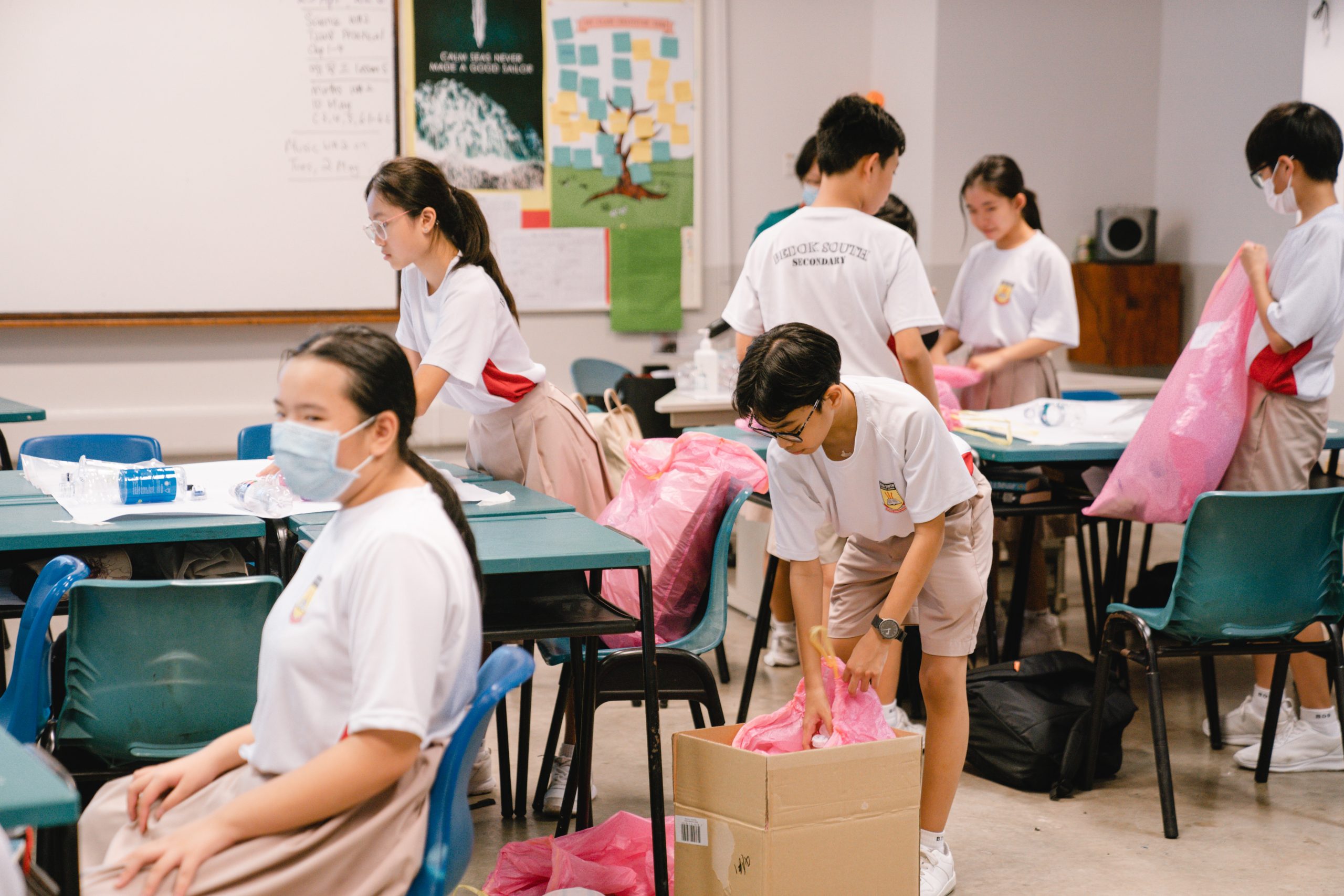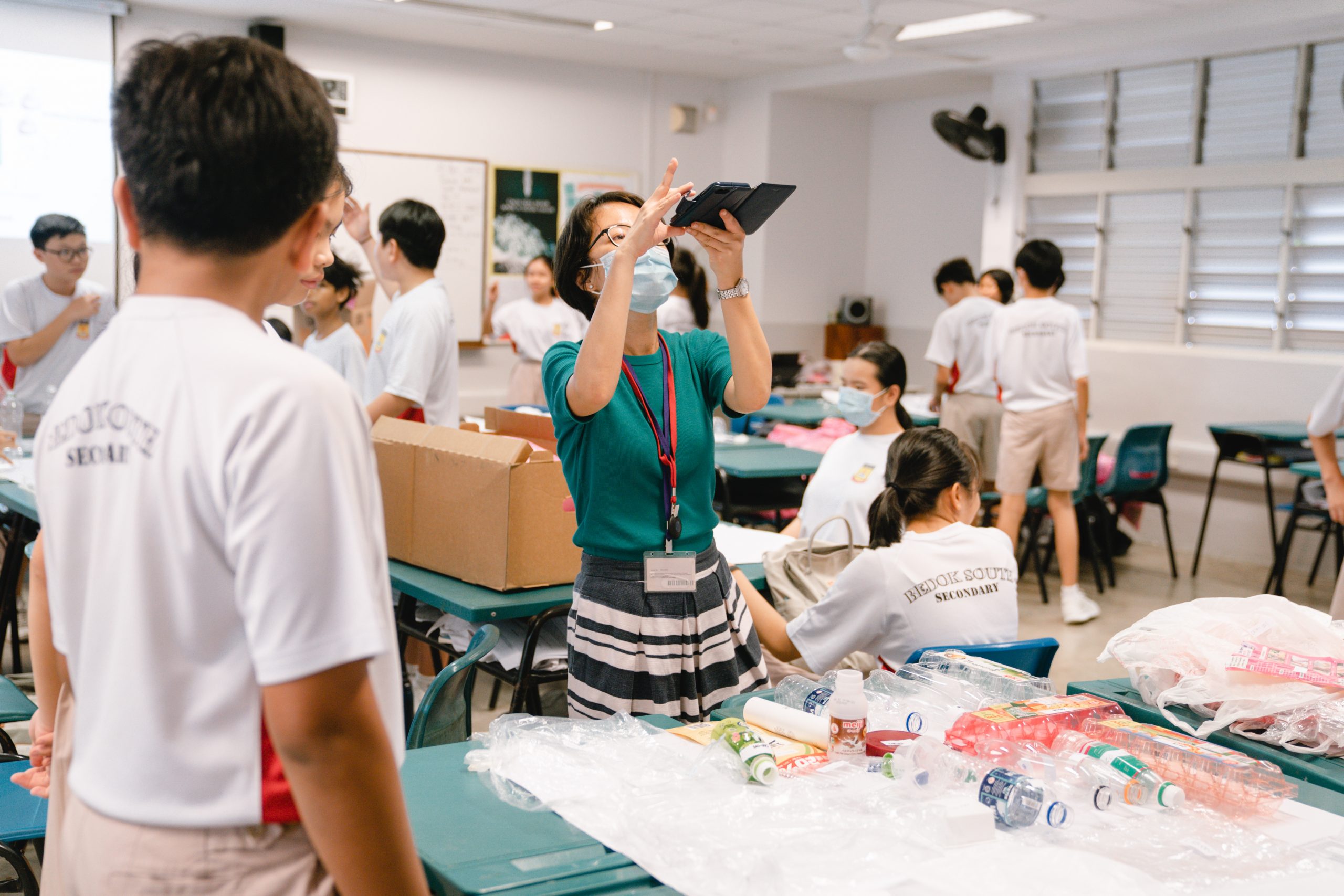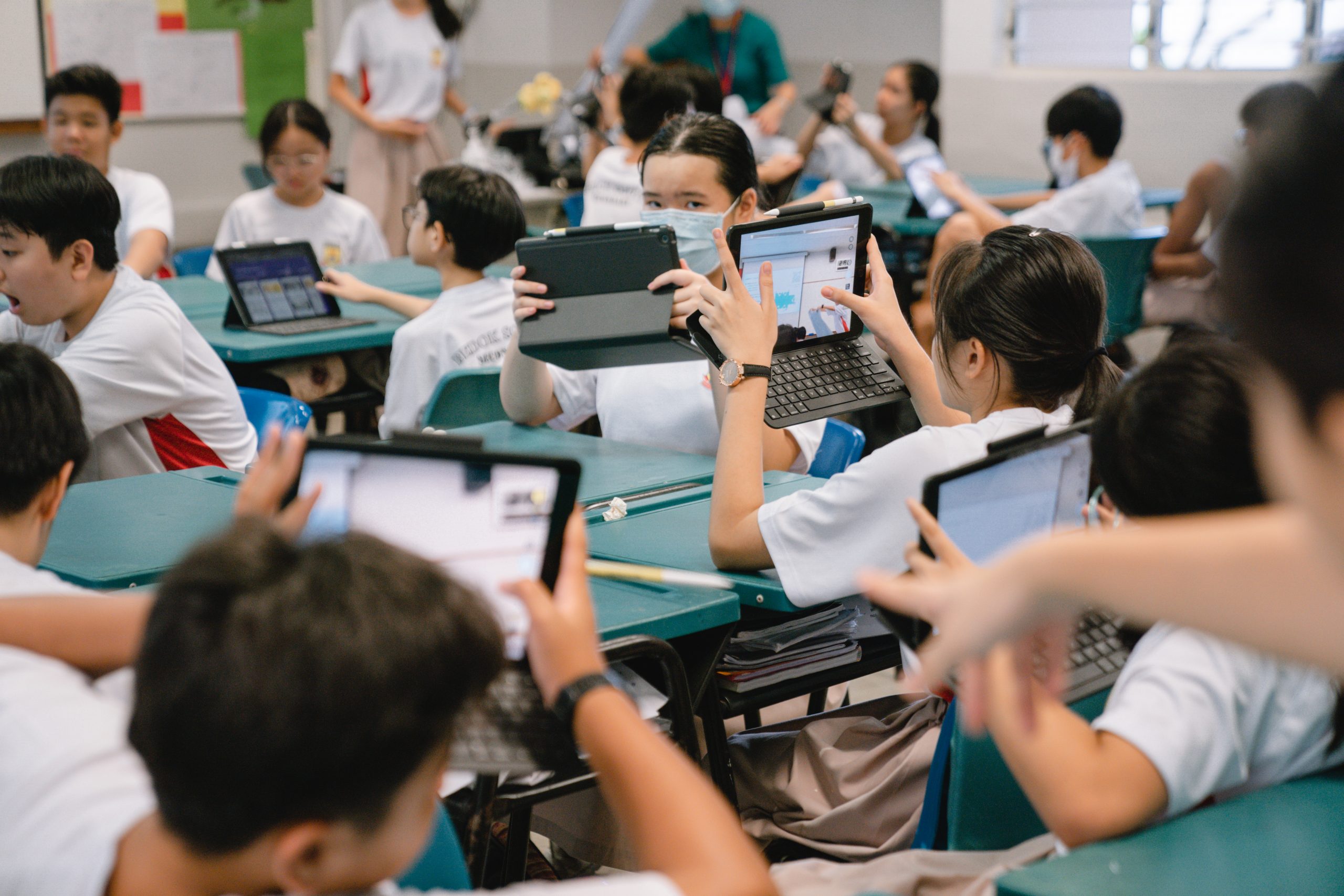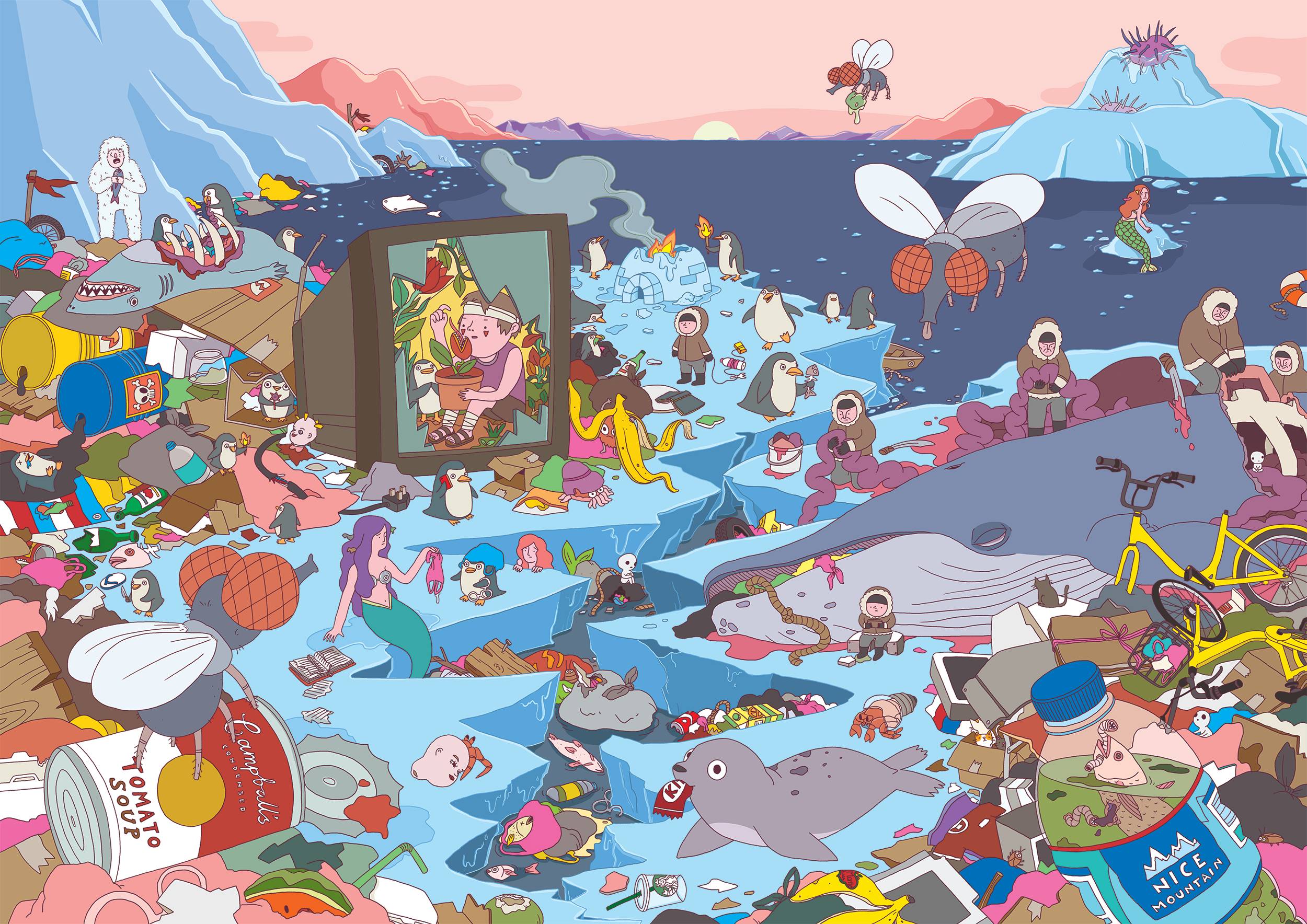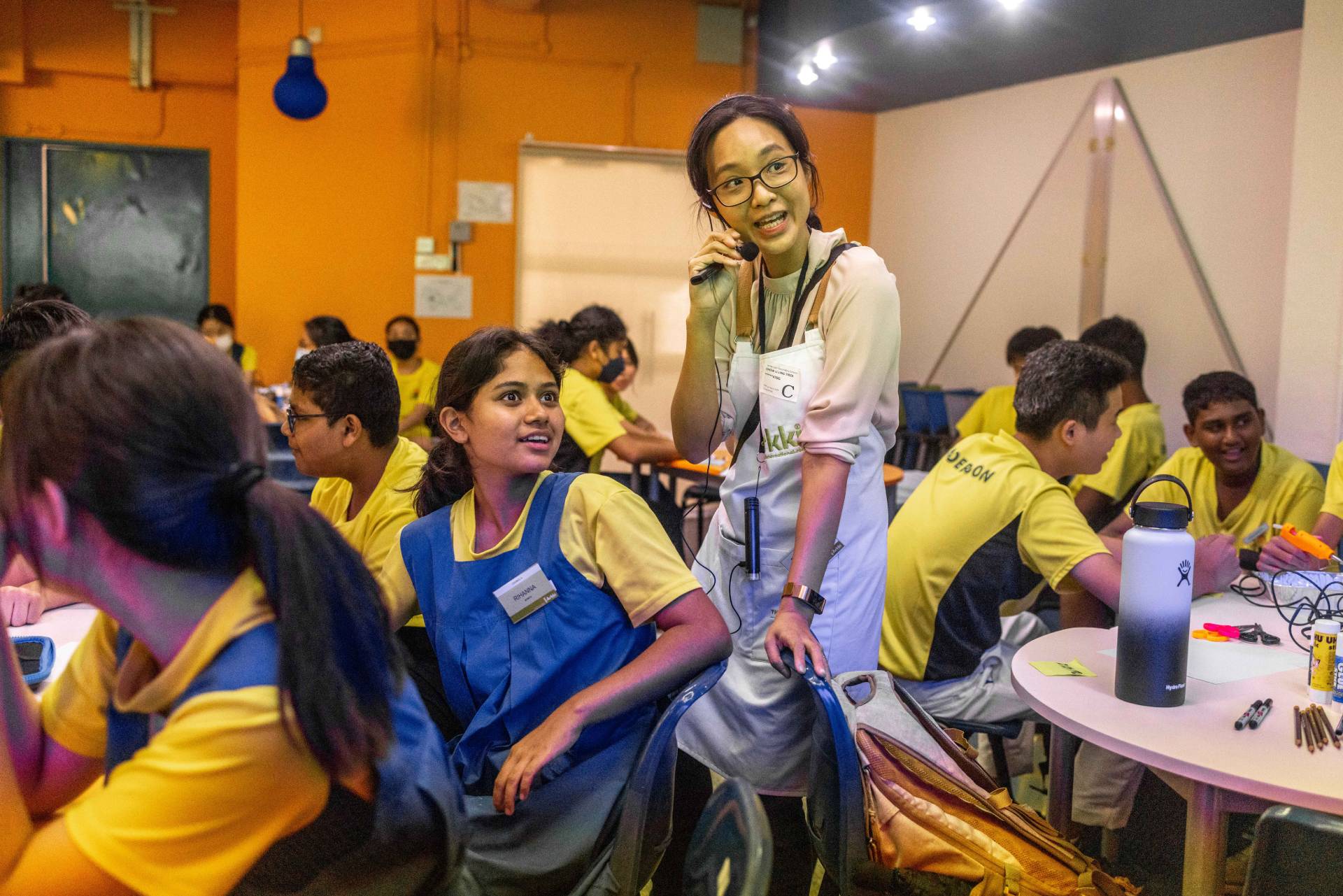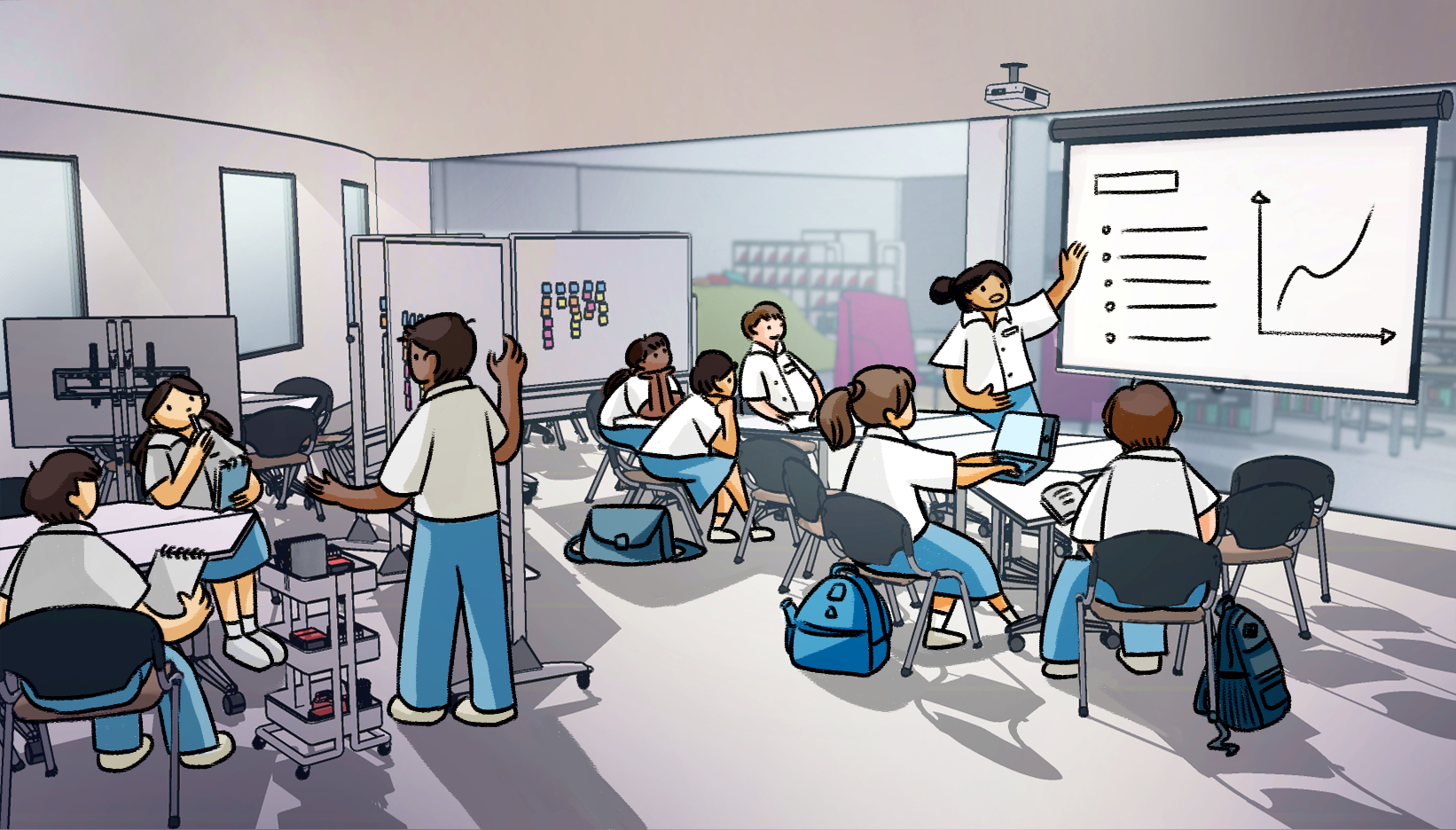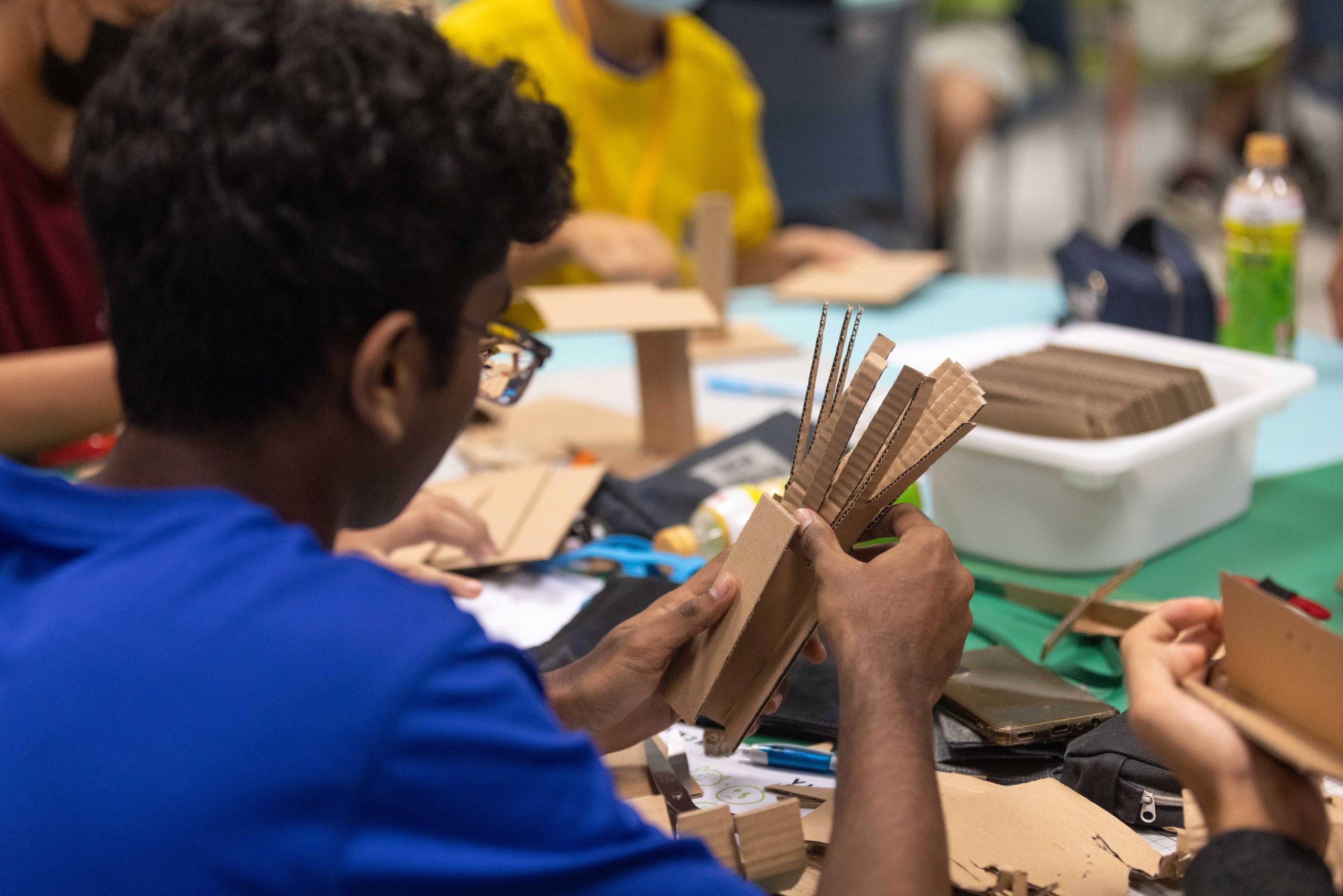LOOK FOR QUESTIONS, NOT ANSWERS!
Masterclasses by Forest & Whale empowered 14 Secondary One educators from Bedok South Secondary School with material literacy and design anthropology to conduct the Applied Learning Programme with confidence.
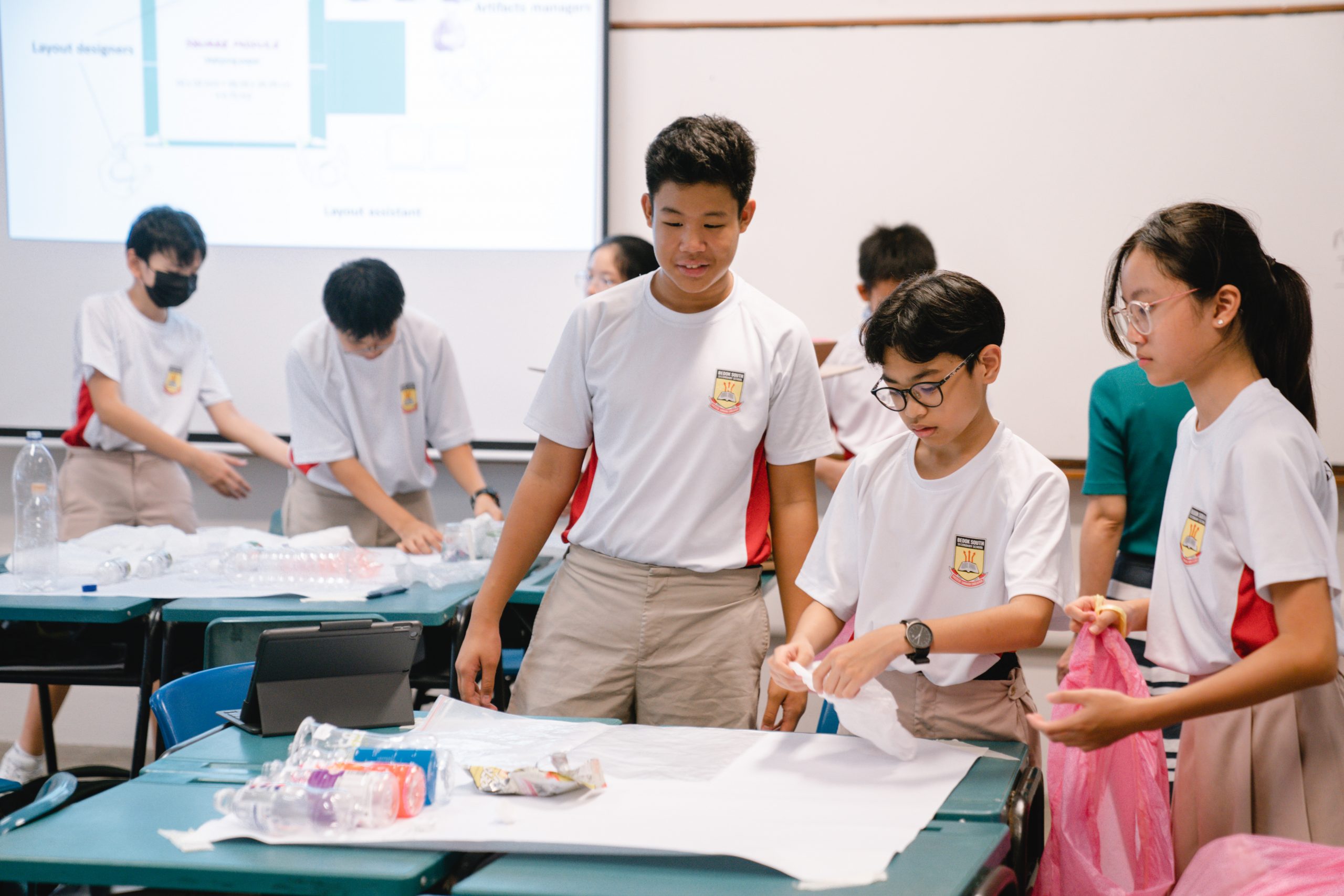
Contact
Forest & Whale
19 Nov 2024
Living in a climate crisis weigh upon us to nurture creative and inquiring minds to ask better questions and approach solutioning in a different way.
Previous ALP programmes on climate issues did not pique students’ interest and they tended to rush to solutions rather than inquiry. Through material literacy (analysing household plastic “artefacts”) and design anthropology (interviews with grandparents about life before plastic), this programme empower educators to help students frame inquiries about the plastic waste crisis and explore how they might nudge recycling behaviours within their school canteen. They explored ways to shift recycling habits in their own school canteen, drawing inspirations from Japan and Germany.
Students sorted their plastic artefacts in the roles of the “layout designer” and “artefact manager”.
This STEAM approach was planned within the Applied Learning Programme in nine bi-weekly sessions across two terms. With design thinking being part of the school’s curriculum, they wanted to dig deeper into empathy techiniques. It helped students to slow down, listen attentively, and increase curiosity about the bigger picture before diving into problem-solving. It is about building empathetic connection in order to derive better questions.
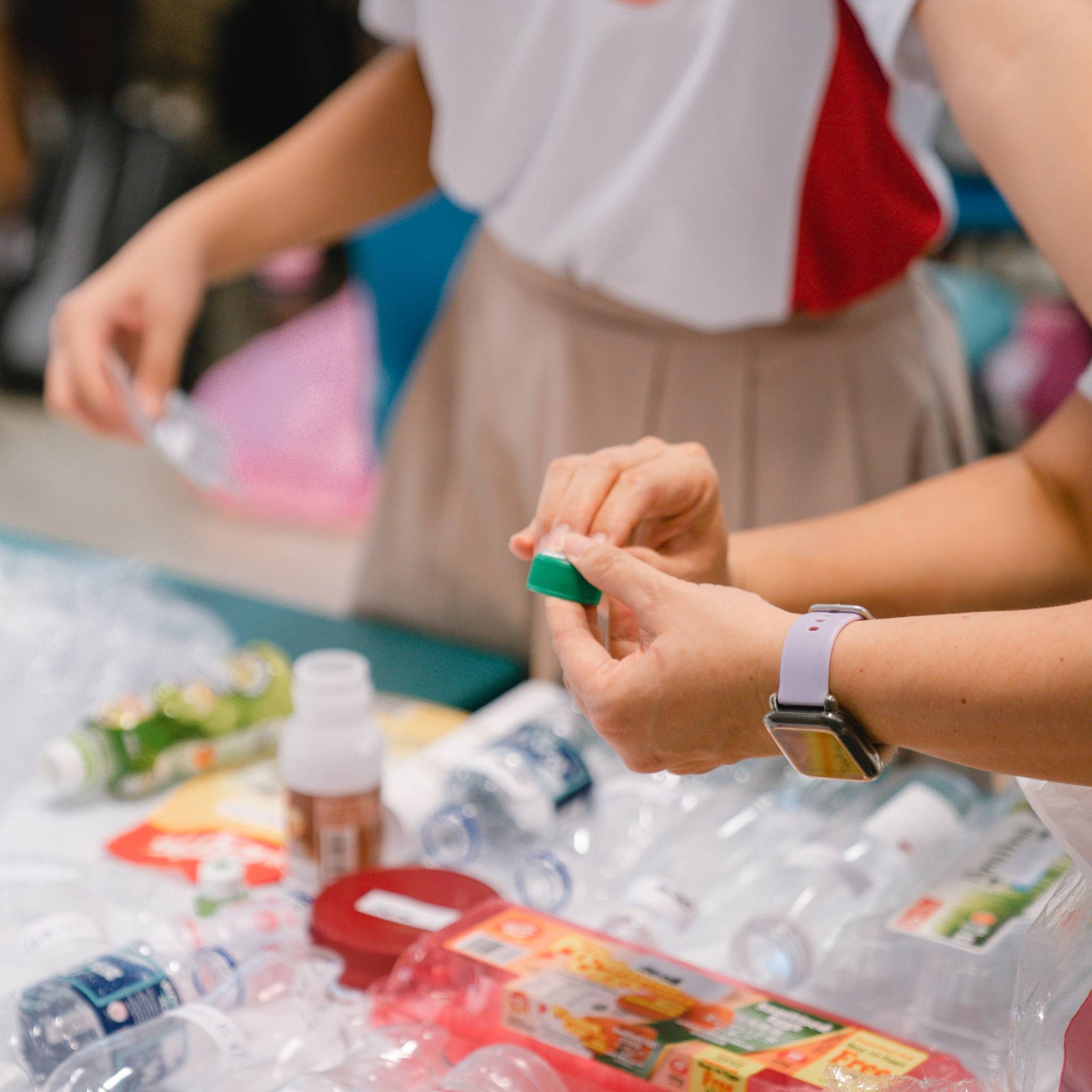
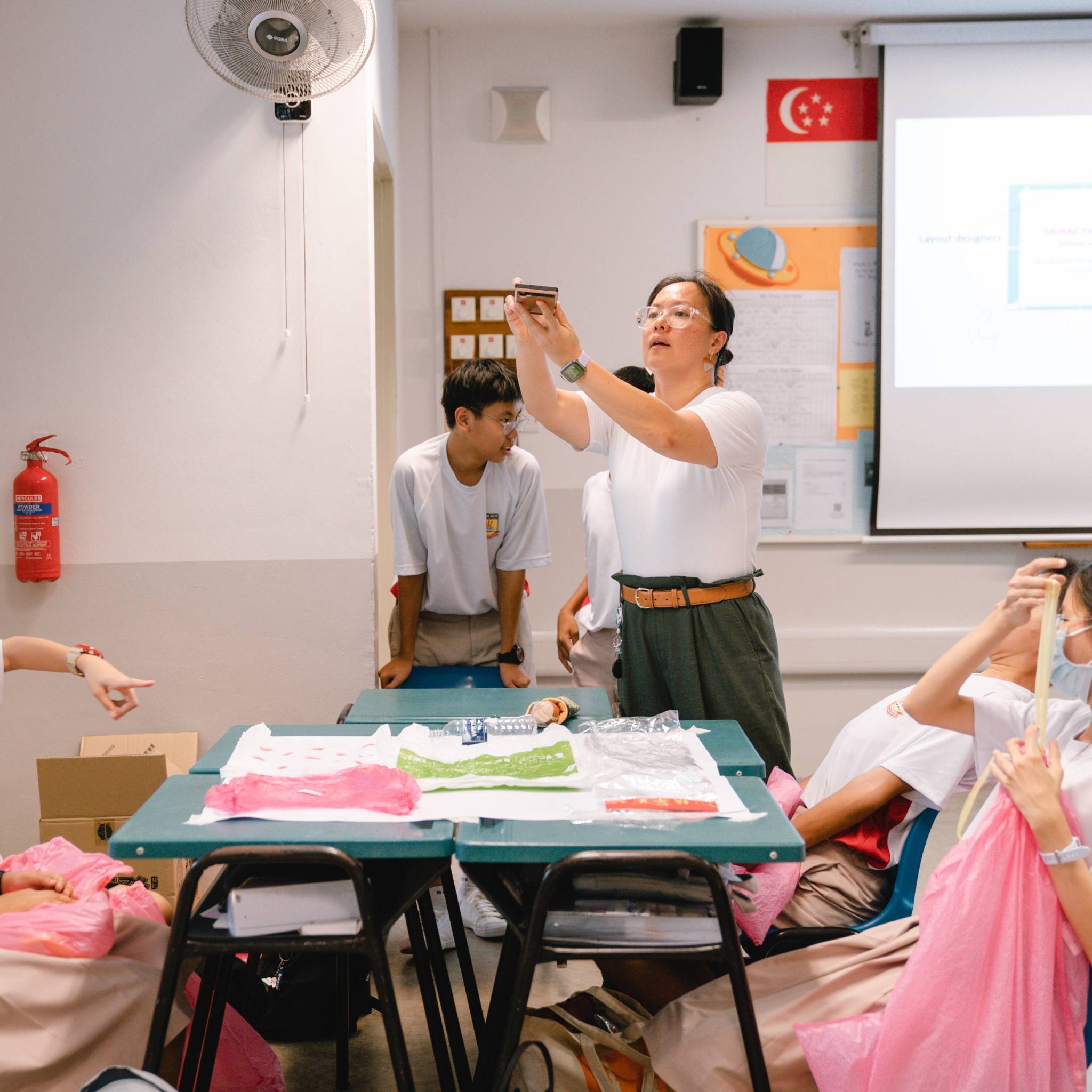
In material literacy, students bought their household plastic waste to study as artefacts through the lens of design anthropology, analysing the myriad polymer types in a visual composition.
Over a nine-week course, students dived into a design-powered world! From empathy-based interview techniques to material literacy workshops, they explored ideas through hands-on learning and creative thinking. The programme kicked off with two exciting webinars and included train-the-trainers sessions to prepare educators for the journey ahead. Educators were equipped with tools they needed such as teaching slides, speech notes, classroom setups, and post-lesson mentorship for each lesson.
The climate crisis is overwhelming, but instead of feeling stuck, students found their power to make a local impact. The programme in this first year wrapped up with a deep dive into the school canteen’s waste streams. Through creative problem-solving, students created iconography design (a collection of illustrations) to nudge their peers toward better recycling habits. They saw for themselves that even the smallest changes can make a big difference!
“I would go through the notes twice to better prepare the lessons, ensuring a smoother delivery of the content. As long as I am making an impact on some of them, I will be happy.”
Joan, Teacher
CO-CHAMPION OF DT-INFUSED ALP PROGRAMME
Programme Partners
Forest & Whale
Schools
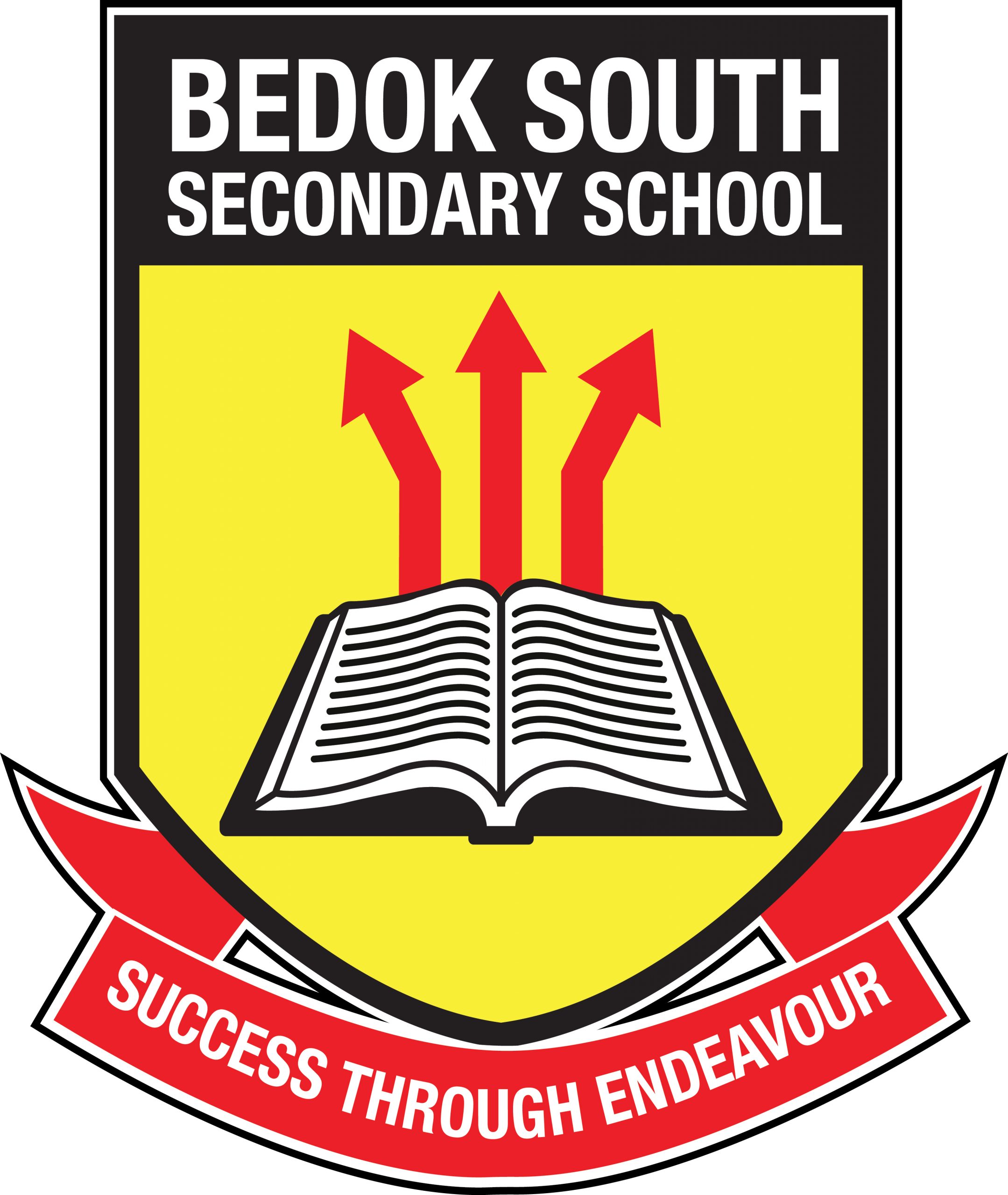
Bedok South Secondary School
